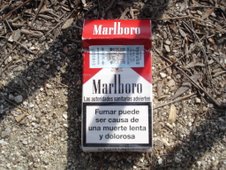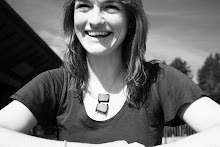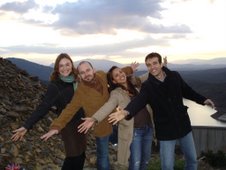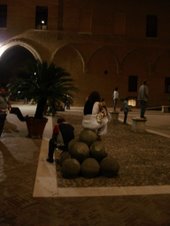Next Stop: Eireann
I'm cold! I'm writing from overcast Cork, Ireland. I'm a bit dazed after a quarter of always having something hanging over my head, of never being able to catch up. I was able to take it in stride and accept that I wouldn't be able to actually catch up, knowing that I was still a good student and that the work I was doing was good.
I was swimming around in future soup a lot during this last quarter, not sure of what to grab on to (a PhD program? But in what subject? A master's? Where though? Should I stay in California? Should I change course from linguistics to equality in education? Would a higher degree linguistics be in line with my values about social justice and equality? Would it separate me from the real world? Could I do anything practical with it?) but thinking it was probably best to grab onto something. In the end, I decided not to apply to graduate school this year. Imagine: for the first time in my life, I will do something that I devise interesting or worthy of looking into rather than just taking the next obvious step that my scholastic career so far has molded me, has indoctrinated me to take. And even that seemed like too gaping a precipice to drop right off of, so I will be turning in one application. It's for Teach For America, a program whose goal is to supplement the deficiencies of rural and urban public schools whose students are years behind in literacy and math standards. It sends students with bachelor's degrees to these communities to become actual teachers for two years. Students like me, with no formal or informal training as teachers, who may have majored in biology or linguistics or history of consciousness as is possible at Santa Cruz or best yet, education. There is an intense and rigorous summer training, followed by two years of classroom practice.
I'm reading a book by the founder of Teach for America, Wendy Kopp, who, like me, was evaluating her future options as a senior a Princeton in the late '80's. She wanted something meaningful to work for rather than to go to a two-year business school just to get rich. I guess it's fair to say I'm not exactly worried that my alternative options are just to go get rich, but I am concerned that they might not be meaningful. Or rather, I think time off doing something real and practical could set the stage for a meaningful degree in something I believe in, and would help me figure out EVERYTHING that I don't know, which is most everything.
Hark, I think I see the sun! And by contorting my body at weird angles, I think I might have spied a tiny corner of blue sky from the window of Giovanni's apartment, one among many in a complex not designed to bring in the little natural Irish lighting that might poke through the clouds now and then. I am reticent to say that this is a dreary city, but suffice it to say that this is a city with friendly people, fighting not to be dreary against the very stiff odds that the omnipotent weather imposes.
This is Day Five in Cork. I have been volunteering half days at the Oxfam Fair Trade shop on French Church Street, and it's been a very good way for me to spend time while Giovanni is at work. It's fair to say I've met more non-Irish people than Irish, but I've met a few of them too. I price and count things that have arrived, I restock the shelves, I work at the cash register (often causing it to stop working when there are more than five people in line), and I drink divine hot dark chocolate from the shop down the way and chat with Esther, the Belgian manager, and other volunteers. Many of the other volunteers are international: French, Italian, etc. Others are Irish, and despite the difficulty I have in understanding many with really broad accents, I'm having fun meeting so many people and actually talking to a few for an extended period of time. It's nice to travel when you can manage to find real opportunities to meet local people.
It's been a quite international experience so far. The first night I arrived, Giovanni and I went to dinner at his friend Giuseppe's house, another Italian who's girlfriend is from Oman. There were also two other couples, the recurring them being Italian male, international female. The other two girls were Dutch and Serbian. It was a lovely evening, especially since the two Sicilians cooked pizza and pasta al forno for dinner!!
I'm going to step out now that the sun has unabashedly begun to shine outside the window. I can't miss the occasion! I would like to see the University of Cork on a day like today. Pictures will be posted soon.
Next week, Giovanni and I will go to West Cork hopefully, and perhaps Kerry, and Wicklow for Christmas. Maybe we'll even make it to Galway before he starts work again!
I only know how to say "buses" and "potato" so far in Irish. I don't know how far that will get me...



















